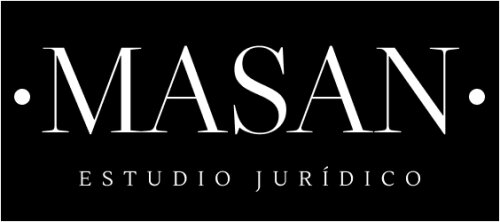Best Defamation Lawyers in Vicente Lopez
Share your needs with us, get contacted by law firms.
Free. Takes 2 min.
List of the best lawyers in Vicente Lopez, Argentina
About Defamation Law in Vicente Lopez, Argentina
Defamation refers to false statements that damage a person or entitys reputation. In Vicente Lopez - as in the rest of Argentina - defamation can be pursued under two complementary routes - criminal law and civil law. Criminal avenues typically address offenses such as slander or insult when a false allegation constitutes a punishable wrong. Civil claims seek compensation for moral damages and can also request corrective measures such as retractions or injunctions to remove content.
Cases commonly arise from traditional media reports, social media posts, workplace statements, private messages made public, blogs, and online reviews. How a case proceeds depends on the facts, the medium used, whether the claimant is a public figure, and the nature of the asserted falsehood.
Why You May Need a Lawyer
You may need a lawyer in defamation matters for several reasons:
- To assess whether a statement is legally defamatory or falls within protected speech such as opinion or truthful reporting.
- To determine whether to pursue criminal charges, a civil claim for damages, or both.
- To gather and preserve evidence properly - for example, time-stamped screenshots, server logs, or witness statements - so evidence remains admissible in court.
- To prepare and send formal notices such as a carta documento or a legal demand for retraction and apology.
- To request urgent court protection - for example, a provisional injunction ordering removal of online content or preventing repetition of the defamatory statement.
- To calculate appropriate remedies and present credible proof of reputational harm and monetary loss.
- To manage interactions with media outlets, platforms, and opposing counsel and to minimize the risk of countersuits for abuse of process or vexatious litigation.
Local Laws Overview
Defamation law in Vicente Lopez is shaped by national legislation applied through provincial courts in Buenos Aires Province and by established civil and criminal procedures. Important practical points include:
- Dual Routes - Defamation can be addressed both as a criminal offense and as a civil claim for damages. A claimant may pursue one route or both, depending on strategy and goals.
- Burden of Proof - The person alleging defamation must usually show that a false factual assertion was made and that it caused reputational damage. Truth is a primary defense - if the statement is true, it generally will not be defamatory.
- Opinion Versus Fact - Statements of opinion, value judgments, or rhetorical expression are often protected. Assertions of fact that are false and harmful are more likely to be actionable.
- Public Figures - People in the public eye typically face a higher threshold to win defamation claims. Argentine courts balance reputation protection and freedom of expression, particularly for political speech and matters of public interest.
- Precautionary Remedies - Courts can grant provisional measures - for example, orders to remove or block content - to limit further harm while the case proceeds.
- Digital Media - Online statements are subject to the same legal principles as traditional media, but practical issues - such as identifying anonymous posters and preserving metadata - complicate enforcement. Courts may order platforms or hosting providers to remove content when legal requirements are met.
- Procedural Rules - Cases are handled in provincial judicial offices - civil and commercial tribunals for damages claims and criminal or correctional tribunals for offenses. Local procedural rules and timelines apply, so early consultation with a local attorney is important.
Frequently Asked Questions
What is considered defamation under Argentine law?
Defamation generally means making a false factual statement that harms another persons reputation. In practice this includes slander and libelous assertions that cause injury to honor or social standing. Whether a statement is defamatory depends on its factual content, context, and whether it can be proven true or false.
Can I bring both a criminal complaint and a civil suit?
Yes. You can pursue criminal charges and a civil action concurrently or sequentially. The criminal route seeks to punish the wrongdoing, while the civil route seeks compensation for damage and civil remedies such as retractions or injunctions. A lawyer will advise on the strategic advantages and drawbacks of each pathway.
How do I begin a defamation claim in Vicente Lopez?
Start by preserving all relevant evidence - screenshots, URLs, timestamps, copies of printed publications, witness names and statements, and records of economic loss. Consult a local lawyer to evaluate the case, prepare a legal demand or carta documento, and if necessary file a criminal complaint with the Ministerio Publico Fiscal or a civil claim in the appropriate provincial tribunal.
What kind of evidence is needed to prove defamation?
Key evidence includes the exact words or publication, proof of publication or distribution, proof the statements referred to the claimant, evidence the statements were false, and proof of harm to reputation or economic loss. Digital evidence should be preserved carefully to maintain admissibility.
Can I force removal of online content or have a social media post taken down?
Yes - courts can order provisional remedies such as injunctions to remove or block online content. Platforms may also act on formal notices when content violates their rules. However, obtaining a court order is often necessary when platforms do not voluntarily remove the material or when identification of the author is required.
What defenses will a defendant typically raise?
Common defenses include truth, opinion or value judgment, absence of intent to harm, reporting on matters of public interest, and privileges such as fair reporting of official proceedings. The specific defense depends on the nature of the statement and the context in which it was made.
How long do I have to file a claim?
Statutes of limitation and prescription periods vary depending on whether the action is criminal or civil and on the applicable procedural law. Because deadlines can be short, you should consult a lawyer promptly. Acting quickly also helps preserve perishable evidence.
What remedies can a court grant if I win?
Possible remedies include monetary compensation for moral and material damages, public retraction or apology, injunctions ordering removal or cessation of publication, and criminal penalties if a criminal conviction follows. Remedies depend on the facts and the legal route pursued.
Do I need to hire a lawyer from Vicente Lopez specifically?
You should hire a lawyer licensed to practice in Buenos Aires Province who knows local courts and procedures. A lawyer based in or near Vicente Lopez or the relevant judicial department can handle filings, attend hearings, and navigate local procedural requirements effectively.
What are the risks of bringing a defamation claim?
Risks include the cost of litigation, the possibility of countersuits or claims for malicious prosecution, the need to publicly revisit disputed facts, and uncertain outcomes. A lawyer can help assess the chances of success and suggest alternatives like negotiation, mediated settlement, or a public correction.
Additional Resources
These organizations and bodies can be useful starting points when you need information or institutional support in or around Vicente Lopez -
- Poder Judicial de la Provincia de Buenos Aires - for information on courts and procedures.
- Ministerio Publico Fiscal de la Provincia de Buenos Aires - for filing criminal complaints and guidance on public prosecutions.
- Defensoría Pública de la Provincia de Buenos Aires - for information on legal aid and representation for those who qualify.
- Colegio de Abogados local or regional - to find a licensed attorney experienced in defamation and media law.
- Defensoría del Público de Servicios de Comunicación Audiovisual - for issues involving broadcast media and consumers rights in communication.
- Asociación de Entidades Periodísticas Argentinas (ADEPA) - a resource on journalists standards and media practices.
- Municipal offices in Vicente Lopez - such as citizen assistance or ombudsman services - for local guidance on complaints and administrative procedures.
Next Steps
If you believe you have been defamed in Vicente Lopez, consider the following practical next steps:
- Preserve evidence immediately - take dated screenshots, save emails and messages, and make certified copies of printed materials when possible.
- Avoid public counterattacks that might escalate the situation or weaken your legal position.
- Contact a lawyer experienced in defamation or media law in Buenos Aires Province for an initial assessment. Ask about fee structure, likely timeline, and possible outcomes.
- Decide on objectives - do you seek a retraction and removal of content, an apology, monetary compensation, or criminal investigation? Your goals will shape the legal strategy.
- Consider sending a formal demand or carta documento through your lawyer to request correction, retraction, or removal before filing suit.
- If urgent harm continues, discuss provisional relief with your lawyer - such as a court order to remove content - while the substantive case proceeds.
- Keep a record of damages and impacts - reputation loss, lost contracts or work, emotional distress, and expenses - to support any claim for compensation.
- If cost is a concern, ask about legal aid, pro bono options, or alternative dispute resolution such as mediation or negotiated settlements.
Seeking legal advice early improves your chances of preserving evidence, choosing the right forum, and achieving an outcome that addresses both reputation and practical needs.
Lawzana helps you find the best lawyers and law firms in Vicente Lopez through a curated and pre-screened list of qualified legal professionals. Our platform offers rankings and detailed profiles of attorneys and law firms, allowing you to compare based on practice areas, including Defamation, experience, and client feedback.
Each profile includes a description of the firm's areas of practice, client reviews, team members and partners, year of establishment, spoken languages, office locations, contact information, social media presence, and any published articles or resources. Most firms on our platform speak English and are experienced in both local and international legal matters.
Get a quote from top-rated law firms in Vicente Lopez, Argentina — quickly, securely, and without unnecessary hassle.
Disclaimer:
The information provided on this page is for general informational purposes only and does not constitute legal advice. While we strive to ensure the accuracy and relevance of the content, legal information may change over time, and interpretations of the law can vary. You should always consult with a qualified legal professional for advice specific to your situation.
We disclaim all liability for actions taken or not taken based on the content of this page. If you believe any information is incorrect or outdated, please contact us, and we will review and update it where appropriate.









